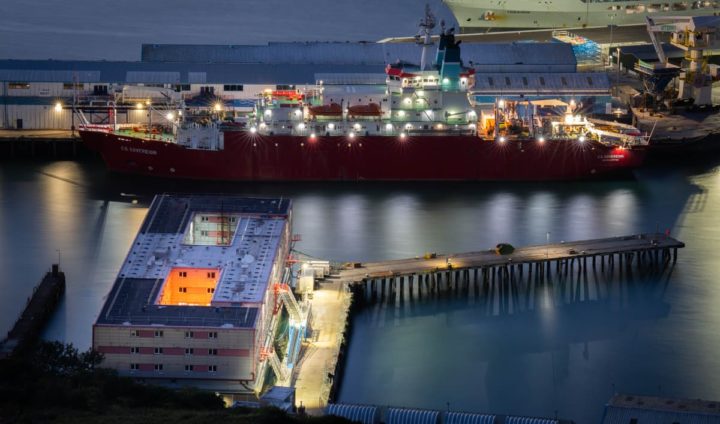Migrants are being temporarily relocated from the Bibby Stockholm barge due to the detection of Legionella bacteria within its onboard water system.
Prior to the migrants’ occupancy, standard testing was conducted on the vessel, which is stationed in Dorset. However, the test results indicating the presence of the bacteria were only received after the migrants had moved onto the barge.
In response, the Home Office has announced that the 39 migrants living on board will be disembarked while comprehensive assessments are carried out.
Legionella bacteria is responsible for causing Legionnaires disease, a severe form of pneumonia.
While migrants have accessed the vessel’s water supply, none have exhibited any symptoms of infection. Nevertheless, as a precaution, they are being relocated from the barge.
This situation has sparked criticism from campaigners and refugee organisations, who have long opposed the utilisation of the Bibby Stockholm for this purpose.
The vessel, situated at Portland Port on the southern coast, is part of the government’s strategy to curb migrant Channel crossings. However, its implementation has faced initial obstacles due to safety concerns and legal challenges.
The government’s ultimate plan involves accommodating up to 500 men aged 18-65 on the Bibby Stockholm while their asylum applications are processed.
Sources reveal that the UK Health and Security Agency has recommended further water supply testing. Subsequent evaluations, conducted by Dorset Council’s Environmental Health team, are underway. Migrants are expected to be returned to the barge only after confirmation that the water supply is free from contamination.
While the temporary displacement of those aboard adheres to UKHSA guidance, government representatives claim to have exceeded the recommended measures.
The Home Office has clarified that no individuals aboard have displayed symptoms of Legionnaires’ disease, and appropriate guidance and support are being offered to the asylum seekers.
It’s emphasised that the samples taken are specific to the vessel’s water system and do not indicate a direct risk to the broader Portland community or the entry of fresh water onto the vessel. Furthermore, Legionnaires’ disease is not communicable between individuals.
Critics have swiftly voiced their disapproval of the government’s handling of the situation. Alex Bailey from the Say No To The Barge campaign group cited inadequate planning and preparation.
Even before the emergence of the Legionella bacteria issue, concerns regarding the vessel’s health conditions were mounting. Dr. Dominik Metz, a GP based in Oxford, expressed apprehensions about potential risks to asylum seekers, particularly in light of one patient being relocated to the barge while receiving treatment for latent tuberculosis.







